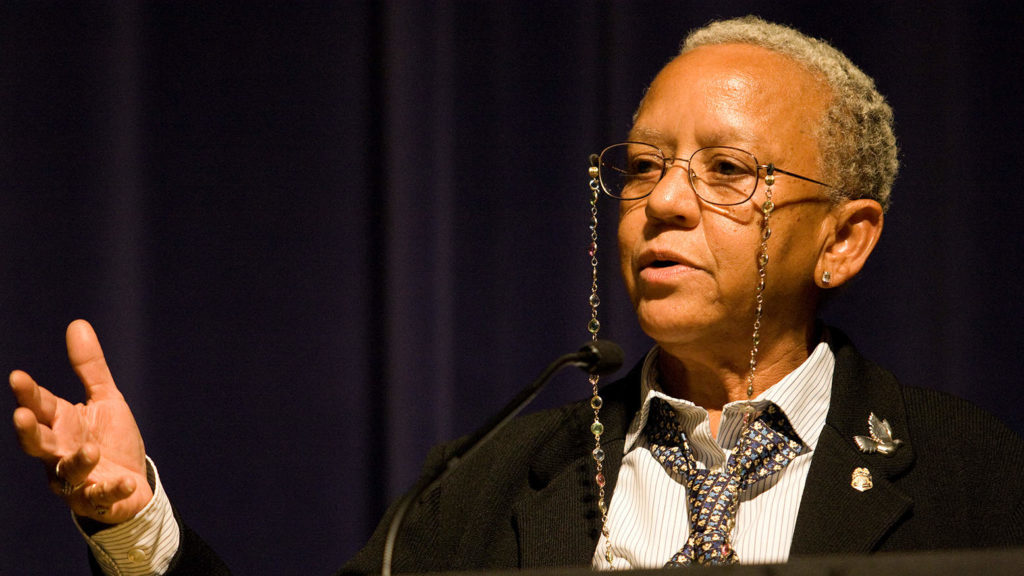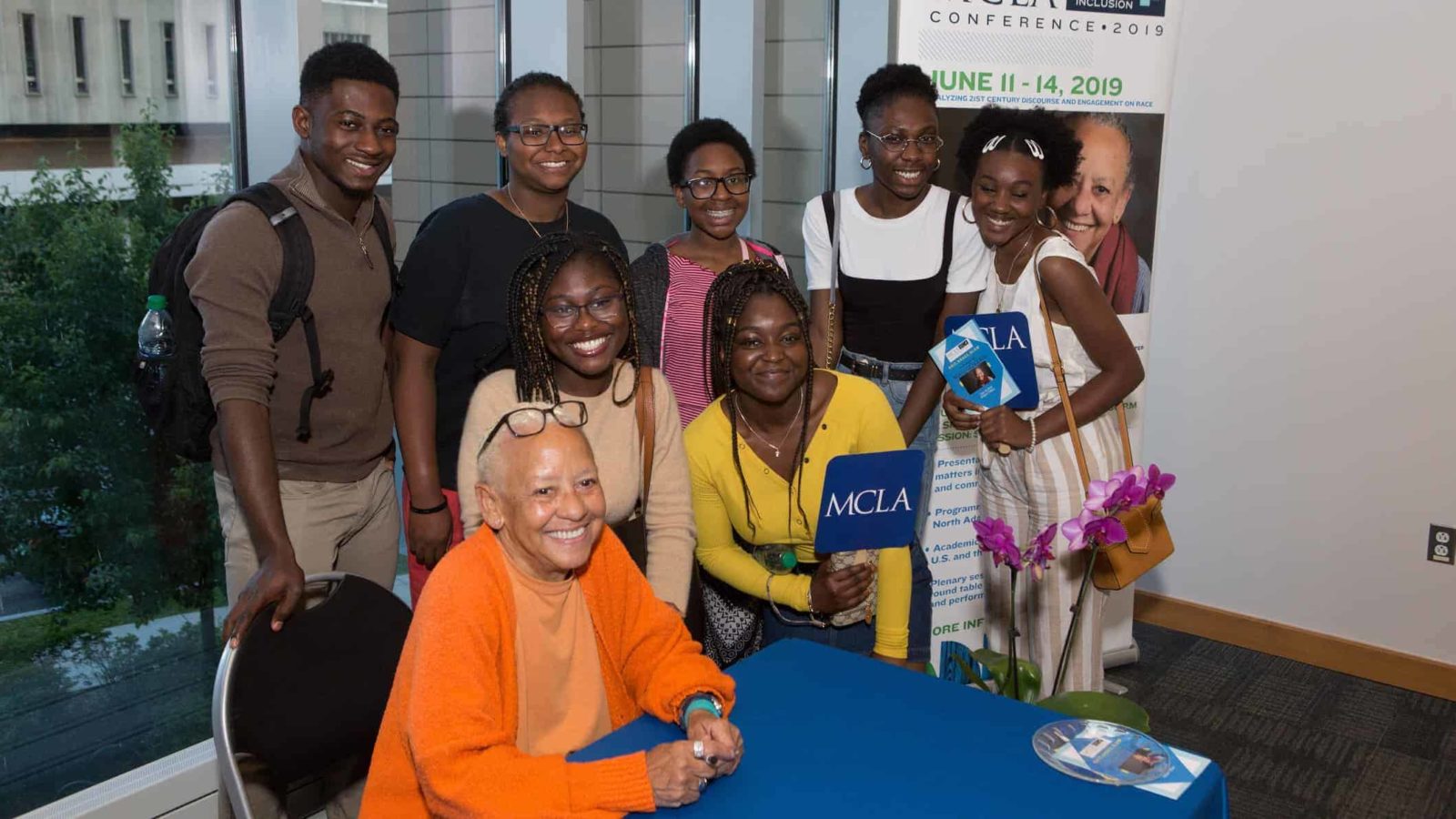When she walked in, the room burst into spontaneous applause.
Internationally acclaimed poet and writer, professor and activist Nikki Giovanni took the mike and talked about “life, liberty and — what I most love — ‘the pursuit of happiness.’”
“I am not worried that people will be over-happy,” she said. “I’m a big fan of the Constitution, a bigger fan of the Bill of Rights, and a lover of the Declaration of Independence. The American Dream is an important part of history — it will be sad if America loses.”

She talked about warm people in her family, her grandfather who taught Latin, her grandmother who tried to teach her to play piano, and about life on Mars, new ways to eat roast chicken, artichoke soup.
“Writers lead the charge into humanity and ask questions,” she said. “Whatever it is that’s enchanting you, that you feel comfortable sharing this enchantment” — then it will enchant listeners.
She had the room laughing aloud.
And in the next sentence, she held it still.
The Civil Rights Movement paid a high price, she said, so that we could sit together in the stable at the Mount on a summer afternoon and listen to her.
Giovanni is internationally acclaimed, and her poetry is taught in high schools and in writing programs. She holds the Langston Hughs medal for poetry; she has written at least 30 books for adults and children. And she published her first book of poetry in 1968, in the year Martin Luther King, Jr. died.
“She is open — she is herself,” said Frances Jones-Sneed, professor of history and political science at MCLA, who worked with the Lift Ev’ry Voice Festival to bring Giovanni to the Berkshires. Sneed has wanted to have her here for many years.
She read poetry to her children at night as a bedtime story, she said, and she would like people here to know Giovanni’s work familiarly, to think of one of her poems casually when they hear her name.
Giovanni is called the poet of the people, Sneed said. People find that her poetry speaks to them.
“I’m impressed by how open and honest and direct she is,” said Jennifer Browdy de Hernandez, professor at Bard College at Simon’s Rock and director of the Berkshire Festival of Women Writers, who joined in bringing Giovanni here. “She says what most people wouldn’t dare to say.”
“We in the black community are lucky, ” Giovanni said, “because we know we have to tell the truth. It’s all we have.”
She invoked the women who sang spirituals, and what they thought and felt as they sang. She heard their voices in that music, when they had few ways to speak openly, and in her voice the songs held pain and laughter and courage: “I keep so busy working for the kingdom, I ain’t got time to die.”
That was clearly a woman’s song, she said.
And she traced the line of music and story forward, to blues, to rap.
“She evolves as the culture evolves,” Sneed said, “and she will appeal to new generations” in new ways.
“She loves young people and wants them to succeed, to do what they wish to do. She would say to them, ‘Society may hold you down, but if your purpose is clear, even if society says ‘you can’t because you’re black, you’re poor, you’re a woman, you’re from a small town in the Berkshires — there are no can’ts. It has never been easy. You have to work hard for the things you want to achieve.’ ”
At the talk, turning to young members of the audience, Giovanni said throughout their careers, “people will say ‘why are you writing about that’? And you’re writing about that — because it’s yours. You can say what you meant to say. You can’t be scared.”
Sneed welcomed the chance to hear Giovanni in an intimate setting, to feel the energy of the performance.
“All Aaron Neville needs is a mike and his voice,” she said, “or Sweet Honey in the Rock.”
She feels the same about poets. You get more understanding and nuance when you hear them read their words aloud, she said.
And Giovanni has written with understanding and nuance, and strength, about contemporary events that have left communities dazed with pain.
“After the shooting at Virginia Tech, she spoke — the shooter was in one of her classes. She encapsulated the feeling of people on campus so well. Poets can look at a situation and summarize, and you’ll say yeah. As a historian, I’ll write 30 or 40 pages, and then I’ll go back to Nikki and find a quote that sums it all up.”
If she has a favorite of Giovanni’s poems, it may be “Nikki Rosa” —
“… they’ll probably talk about my hard childhood / and never understand that / all the while I was quite happy.”
People will ask Sneed whether she is happy here, and she will say yes.
“I have my family, my friends, my work,” she said, laughing. “Don’t cry for me, Argentina.”
Standing straight and quietly, Giovanni looked out at the crowd wanting to know where she found her clear, direct voice.
“All I have is me,” she said. “I don’t know when I didn’t know that.”
Nikki Giovanni spoke in the Berkshires in July, 2013, and this column first ran in Berkshires Week in the Berkshire Eagle in my time as editor there. My thanks to VP of News Kevin Moran.

